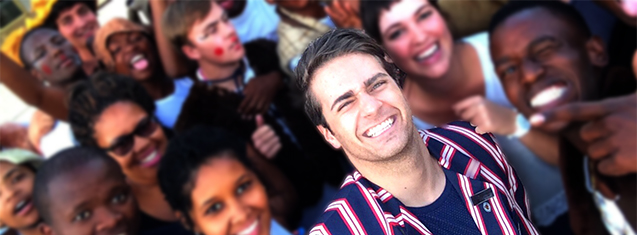
"Stagedoor was an absolute success," says fourth-year medical student, Stefan van der Westhuizen and SRC member for arts and culture.
"I've always been a diverse person and exposed myself to many things."
Raised in Vanderbijlpark near Johannesburg, Stefan has always had a passion for arts and culture.
"It's a platform where students express so much. Stagedoor is where you can see students express their commentary on what is happening on campus and feel like it’s almost a safe zone."
Stefan’s year on the SRC brought about a new format to rotations. Residences paired with each other, while the new 'outdoor' interactions made it possible for residence and off-campus students to interact with rotations.
"I was most proud of the rotations that took place even at the Agricultural Building. There was some great interaction," he said.
Stefan said the idea was to fix things.
“Not much had changed with Stagedoor when I got into office, even ticket sales were decreasing. I wanted to get students amped about it again."
A different element of Stagedoor 'outdoor' was to try to get spontaneity, and to try to get away from residences doing the same plays, but get them out of their comfort spot.
“When we heard the results, we lit up with excitement because we didn't have the usual winners,” Stefan said.